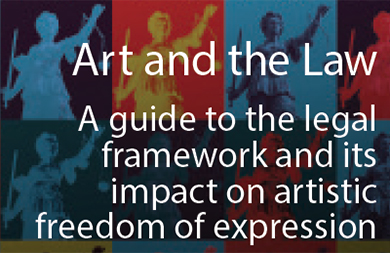17 Aug 2015 | mobile, News and features, United Kingdom, Youth Board
This is the second of a series of posts written by members of Index on Censorship’s youth advisory board.
Members of the board were asked to write a blog discussing one free speech issue in their country. The resulting posts exhibit a range of challenges to freedom of expression globally, from UK crackdowns on speakers in universities, to Indian criminal defamation law, to the South African Film Board’s newly published guidelines.
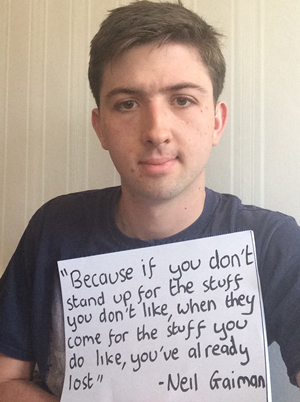
Tom Carter is a member of the Index youth advisory board. Learn more
Universities are meant to be institutions that embody the spirit of free expression. They are places where new ideas are formulated and environments where students are exposed to a range of viewpoints. However, whilst freedom of expression in universities is under threat from government intervention, another threat to freedom of expression on UK campuses is originating from the students themselves.
In October 2014, UKIP’s Nigel Farage was invited by the University of Cambridge’s politics department to give an address on an undisclosed topic. This prompted two independent Facebook campaigns, one of which was from the Cambridge University Students’ Union Women’s Campaign imploring Cambridge to rescind the invitation, which it eventually was.
This is indicative of an increasing hostility among UK students towards the expression of ideas deemed unacceptable. Whether or not you agree or disagree with UKIP’s policies, they are the UK’s third largest party by vote share and very much constitute part of the political mainstream.
The fact that students are now willing to influence the speaker choices of universities is a worrying trend. Only by hearing views different to your own can your ideas be refined and fine-tuned and hearing policies expressed in public discussion is the only way to scrutinise them effectively.
Tom Carter, UK
Related:
• Matthew Brown: Spying on NGOs a step too far
• About the Index on Censorship youth advisory board
• Facebook discussion: no-platforming of speakers at universities
17 Aug 2015 | mobile, News and features, United Kingdom, Youth Board
The new cohort of the Index on Censorship youth advisory board was launched last month. The board is already participating in discussions on Facebook.
Members of the board were asked to write a blog discussing one free speech issue in their country. The resulting posts exhibit a range of challenges to freedom of expression globally, from UK crackdowns on speakers in universities, to Indian criminal defamation law, to the South African Film Board’s newly published guidelines.
In the first of a series of posts, youth board member Matthew Brown explores mass surveillance in the UK.
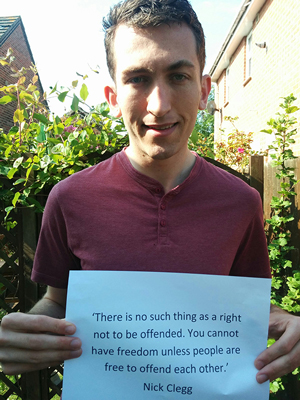
Matthew Brown is a member of the Index youth advisory board. Learn more.
I don’t often begin writing by quoting Herman Goering but on one account he was worryingly accurate. Goering stated that: “The people can always be brought to the bidding of the leaders. All you have to do is tell them they are being attacked and denounce the pacifists for lack of patriotism and exposing the country to danger. It works the same way in any country.”
Increasing levels of surveillance are often justified as essential in protecting us from imminent attack but the recent revelation that GCHQ spied illegally on Amnesty International, an organisation relying upon the secrecy of their communications with human rights defenders, demonstrates the extent to which state surveillance methods are now out of control.
It is easy to scorn states known for their dictatorial regimes but our society has only progressed to its current position through holding the state to account. If we fail to continue to do so, then the slide towards a world in which freedom of expression is restricted at any given moment the government decides appropriate is inevitable. The interception of the correspondence of NGOs raises the worrying question of how these organisations can continue their crucial work if their confidential correspondence is likely to end up out of their hands.
Matthew Brown, UK
Related:
• Tom Carter: No-platforming Nigel
• About the Index on Censorship youth advisory board
• Facebook discussion: no-platforming of speakers at universities
17 Aug 2015 | Campaigns, Statements
The following letter was published in The Times.
Sir, The abrupt cancellation of the National Youth Theatre’s production of Homegrown is a troubling moment for British theatre and freedom of expression. The play seeks to examine radicalisation and disaffection among British youth. Its cancellation serves only to shut down conversation on these important issues. We fear that government policy in response to extremism may be creating a culture of caution in the arts.
We are deeply concerned by reports that the NYT may have been put under external pressure to change the location and then cancel the production. Police, local authorities and arts organisations have a duty to respect and protect freedom of expression — even, and most especially, where they disagree with the message or find it controversial.We urge the NYT to give a full account of what led to the decision, and hope that a way can be found to stage it so that the young voices involved can be heard and the production can be judged on its merits.
Maureen Freely, president, English PEN
David Aaronovitch, chair, Index on Censorship
Jodie Ginsberg, chief executive, Index on Censorship
Jo Glanville, director, English PEN
Shami Chakrabarti, director, Liberty
Anish Kapoor, artist
Anneliese Davidsen, executive director, Unicorn Theatre
Christopher Haydon, artistic director, Gate Theatre
Sir David Hare, playwright
David Lan, artistic director, Young Vic
Gurpreet Kaur Bhatti, playwright
Heydon Prowse, actor
Jolyon Rubinstein, actor
Howard Brenton, playwright
Josie Rourke, artistic director, Donmar Warehouse
Lorne Campbell, artistic director, Northern Stage
Monica Ali, writer
Timberlake Wertenbake, playwright
Nell Leyshon, playwright
Nick Williams, executive director, Actors Touring Company
Ramin Gray, artistic director, Actors Touring Company
Sabrina Mahfouz, playwright
Sarah Frankcom, artistic director, Royal Exchange Theatre Manchester
Simon Callow, actor
Stella Odunlami, artist and performer
Related:
• The Times: Why was Homegrown cancelled?
• Index calls for transparency on Homegrown cancellation (13 August 2015)
• Creative team behind Homegrown “deeply shocked” by cancellation (13 August 2015)
• Cancellation of Homegrown is very worrying (5 August 2015)
14 Aug 2015 | Events, mobile, Zimbabwe

The Bafta-winning duo Heydon Prowse and Jolyon Rubinstein, of BBC Three’s comedy series The Revolution Will Be Televised are joining their award-winning Zimbabwean counterparts Zambezi News for a very special one-off show at The Comedy Café Theatre, London.
Featuring Zambezi News Live – a 30 minute satirical sketch performance from Comrade Fatso, Outspoken and Michael K that hilariously tackles issues from race to sex, politics to sport and hip-hop to land reform. The story of Zambezi News, the comedians poking fun at power in Zimbabwe, was covered in the latest issue of Index on Censorship magazine.
The Zimbabweans will then be joined onstage by Heydon and Jolyon to share stories, swap jokes and explore experiences of censorship and free speech on both sides of the Sahara.
When: Thursday 27th August, 8.00pm
Where: The Comedy Cafe, 68 Rivington St, Shoreditch, London, SE2 (Map/directions)
Tickets: Sold out

Presented in partnership with The Comedy Cafe Theatre
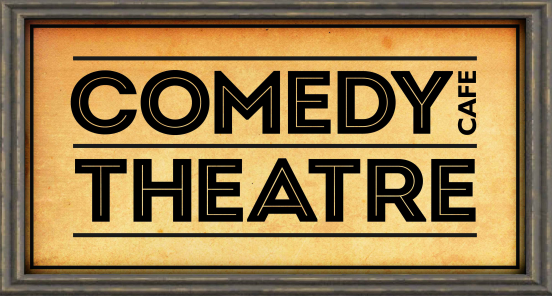
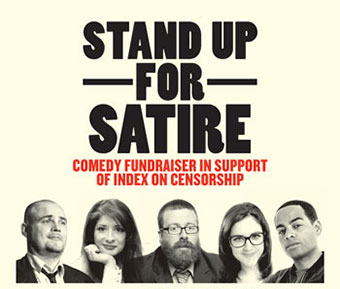 Index on Censorship has been publishing articles on satire by writers across the globe throughout its 43-year history. Ahead of our event, Stand Up for Satire, we published a series of archival posts from the magazine on satire and its connection with freedom of expression.
Index on Censorship has been publishing articles on satire by writers across the globe throughout its 43-year history. Ahead of our event, Stand Up for Satire, we published a series of archival posts from the magazine on satire and its connection with freedom of expression.
14 July: The power of satirical comedy in Zimbabwe by Samm Farai Monro | 17 July: How to Win Friends and Influence an Election by Rowan Atkinson | 21 July: Comfort Zones by Scott Capurro | 24 July: They shoot comedians by Jamie Garzon | 28 July: Comedy is everywhere by Milan Kundera | Student reading lists: Comedy and censorship



